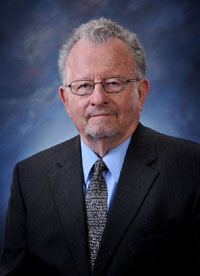How does Donald Trump want us to read his paralipsis?
Associate professor of Communication at Texas A&M, Jennifer Mercieca, defines this word of Greek origin: "to say publically things one can later disavow without being responsible for one’s previous statement." Insinuation and innuendo appear to be verbal first cousins. Her statement was published (Huffington Post, December 12, 2015) well before Mr. Trump’s most recent tsunami of paralipses.
Some are keeping track of all the statements candidate Trump has made that he later disavowed partially, after the maximum press advantage had been achieved. One of the more recent is to affirm that President Obama is the “founder of ISIS”…along with “cofounder, Hillary Clinton.”
Republican candidate for president of the USA, Donald Trump, is already our national Prince of Paralipsis. Nothing is unusual about different people understanding the same statement in a much different way. It happens daily, but the serious speaker usually clarifies the meaning, apologizes if there is a misunderstanding, and continues. The audience determines if there is genuine remorse, especially if the candidate changes his language and actions.
Donald Trump appears to want to tease his audience with confusing comments which attract the media and (sometimes) increases the ratings of television and radio audiences. Not necessarily do these ratings favor him in the coming elections, but he does seem to be going back to being the “genuine Trump.” He said emphatically last week: “I am who I am,” and he was not quoting the biblical book of Exodus!
Take a few minutes to research psychotherapist Sandy Hotchkiss’ “seven deadly sins of narcissism”. You may be surprised by how many describe Mr. Trump. Does he know that he has problems? Does he even know that he often lies? Will his new team hold him to better standards, or will they just be more articulate in defending him?
With his new leadership team, and his expressing “regrets” for some of his past statements, Mr. Trump shows his political “savvy” by responding to past criticisms of his many paralipses. Yet his new team is farther to the right than his past two teams: this plays to his true base. Can his new humility plus his move to the far right improve his election chances?
What can the confused voter do; especially if we think about the implications of this election for our next generation? Can our journalists be charged to set a higher standard for all our media? Can they underline the importance of integrity if we are to have peace with justice, without bullets and bullying?

Associate Professor Emeritus of Humanities
Austin College